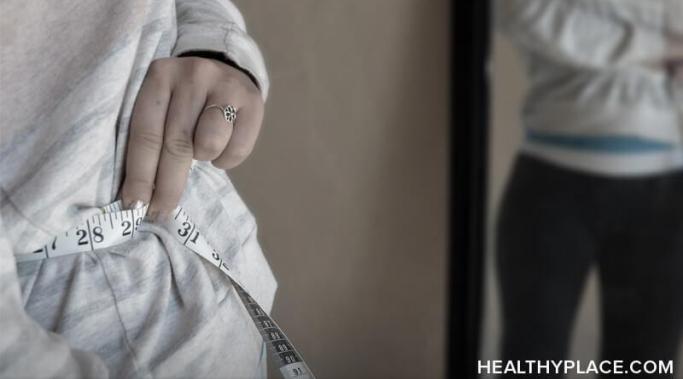In my experience, people in the early stages of eating disorder recovery often rush their progress. Unfortunately, this rush adds pressure to an already stressful situation, which can cause people to experience more setbacks than necessary.
Coping Skills for Eating Disorder Recovery
I had no intention of being someone who unrolls a mat in a candlelit room and chants, "Namaste," with my palms entwined at heart's center, but this is me nonetheless—yoga is now part of my eating disorder recovery, and I am thankful for the conduit of healing it's become. I have a long, complicated—and, at times, unhealthy—relationship with exercise. I am also an intense, feisty, and energetic person by nature which means that my workouts often match this intensity, but one exercise that I never imagined I would feel such a profound, almost sacred connection to is yoga.
Mantras for eating disorder recovery work for me. For example, I don't meditate. I have trouble sitting still for more than a few seconds. Even when I do yoga, it's the sweat until you vomit sort, not the calm, restorative kind. All this is to say the idea of mantras do not come easily to me, but using mantras for eating disorder recovery has been a powerful and subtle tool that helps me overcome negative thinking.
This is a vulnerable admission for me to write, but my 15-year battle with an eating disorder has made an impact on my sexual desire. There—I confessed it openly. I pushed back against the shame, embarrassment, and insecurity that too often silences me on this particular issue.
For those of us who have or have had eating disorders, the feeling of a full stomach can be an extremely disconcerting sensation. Sitting after a meal while feeling full can cause anxiety and guilt. I've been in recovery for nearly a decade and I still sometimes struggle with feeling full, but learning how to be okay with being full was an important step in my eating disorder (ED) recovery.
I don't believe in eating disorder triggers. Sounds pretty bold, right? We live in a world awash with eating disorder (ED) trigger warnings and those of us who are in ED recovery are constantly warned to avoid our triggers lest we slip back into old habits, and I straight-up say I don't believe in them.
Social justice and eating disorder recovery are two of the driving forces in my life. It informs my relationships, conversations, and writing, but I cannot take credit for this—eating disorder recovery introduced me to social justice.
Eating disorder resolutions for the new year should focus on health, not food, weight, or exercise. All too often in this culture, New Year's resolutions focus on those things. It's just another confirmation that society as a whole is image-obsessed to an unhealthy extreme.
When did I start eating disorder recovery? The timelines don't add up. Whenever I talk about my eating disorder recovery, there seems to be an inconsistency in the timeline I give for when my eating disorders first really began to flourish, and when I entered recovery. This disparity didn't occur to me until I listened to the video I prepared to introduce myself as an author here at HealthyPlace. In the video, I say that I battled with anorexia and bulimia for almost two decades. Then, I say that I've been in recovery for almost 10 years. I also mention that I'm 38 years old. So what gives?
If you have dealt with any patterns of disordered eating in your life, chances are these behaviors were—or continue to be—fueled by negative self-talk around body image. Since the brain is a complex, independent, thinking organism, self-talk is an intrinsic part of the human experience. You are hardwired for internal dialog with yourself, and this is not always problematic. That endless stream-of-consciousness in your head is shaped by the beliefs, perspectives, attitudes, and observations that help you negotiate the world around you. When used constructively, self-talk can empower you to confront fears, gain motivation or discipline, boost confidence, and strengthen areas of improvement. But if this self-talk turns critical toward yourself—in particular, how you look or what you weigh—it causes shame to take root and harmful behaviors to manifest which could result in an eating disorder. So it's important to learn how to reframe your negative self-talk around body image into a kinder, more compassionate dialog.









